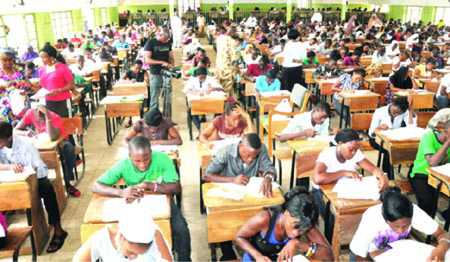 The Federal Government, yesterday, said that the foundation which formed the bedrock of the nation’s education policy had become obsolete.
The Federal Government, yesterday, said that the foundation which formed the bedrock of the nation’s education policy had become obsolete.
President Goodluck Jonathan made this known at the opening ceremony of the 20th Nigeria Economic Summit, with the theme, ‘Transforming Education through Partnership for Global Competitiveness,’ in Abuja.
This was even as the government said that it invested N561.9 billion in tertiary and secondary education between 2009 and last year.
The Chairman of the NESG, Mr. Foluso Philips, also called on Federal Government to make public the forensic audit of the alleged missing
$20 billion oil money, with a view to resting the controversy permanently.
“Within weeks from now, Nigeria would be hosting for the first time, the global gathering for Economic Forum for Africa, which had been held in different parts of Africa for the past 24 years and will be attended by global players that are looking to Africa as the next great and emerging continent. This is indeed an honour to Nigeria, but setting also the urgency to fix the things that are clearly broken,” he said.
The NESG Chairman also stated that so much had happened to the economy since the end of the 19th summit in September 2013 on agriculture, with so many agro entrepreneurs emerging.
In addition to this, he said that the Federal Executive Council had adopted several policies to accommodate some of the recommendations made at the last summit.
Beyond these policies, he added that government was working on new legislations to support the agricultural transformation.
His words: “since the last summit, a number of private sector investors had made some investments like Dangote Group that committed $515 million in the tomatoes, rice and sorghum in Kano State; Flour Mill of Nigeria has committed about $217 million for cassava processing, while Dansa Foods is to invest about $100 million on fruit juice processing. The economy at six per cent last year had continued to show a robust growth in output.
However, Jonathan asked NESG, to review the policy foundation developed about 45 years ago in 1969 to meet current realities. Jonathan spoke through the Vice President, Mohammed Namadi Sambo.
According to him: “More than 40 years after, this policy foundation is ripe for review, to determine its relevance and fine-tune its adaptability to national objectives, in this 21st century.
“It is my hope that this summit will take up this challenge by applying itself rigorously to the design of an ideal education system that will satisfy our national needs and aspirations.”
Jonathan pointed out that development of the education sector was one the major priorities of his administration as it was the key for accelerating national transformation and development.
“Education has changed the destiny of nations, big and small and we are determined to change our story for the very best,’’ pointing out that the Federal Government had identified access, quality and equity as the main strategic goals of the new education policy.
Jonathan stressed that government had introduced several initiatives including the girl and boy-child education, the Almajiri system, teacher training and retraining, increased funding and other far reaching policy reforms at all levels of the education system to achieve these goals.
He, however, called for more partnership between the three tiers of government, the private sector and international development agencies in designing credible sectoral accountability frameworks that will impact positively on the sector.
Development of human capital
“There is an urgent need to develop human capital, by investing and improving the skills of our people to facilitate the actualisation of our national objectives,” he stated, and urged stakeholders in the education sector to articulate practical solutions to surmount challenges of acquiring accurate statistics, especially at the basic and secondary levels, particularly on school enrolment and other education indices. “It is necessary that we get the numbers right to aid successful planning and decision-making,” he added.
Earlier in his speech, the Supervising Minister of Education, Mr. Nyesom Wike, had said that the Federal Government invested N561.9 billion in tertiary and secondary education between 2009 and 2013. Wike explained that tertiary education attracted N522.2 billion, while secondary education got N39.7 billion within the period under review.
’’The Federal Government invested N522.2 billion within the period 2009 – 2013, in the area of project development, academic staff training and development, library development and other high impact projects in tertiary education. ’Out of this amount, N456.5 billion was accessed while N65.6 billion was committed but not accessed. ’The investment in tertiary education through Tertiary Education Trust Fund, TETfund to universities was N268.5 billion of which N35.1 billion was not accessed.”
By EMEKA MAMAH, EMMA UJAH, Abuja Bureau chief & EMMANUEL ELEBEKE



























